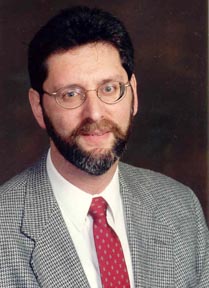 Steven Pittler, Ph.D., professor in the University of Alabama at Birmingham (UAB) Department of Vision Sciences in the School of Optometry and director of the Vision Science Research Center, has one of 10 winning submissions from a pool of nearly 500 entries in the Audacious Goals Challenge, a nationwide competition of the National Institutes of Health’s (NIH) National Eye Institute (NEI).
Steven Pittler, Ph.D., professor in the University of Alabama at Birmingham (UAB) Department of Vision Sciences in the School of Optometry and director of the Vision Science Research Center, has one of 10 winning submissions from a pool of nearly 500 entries in the Audacious Goals Challenge, a nationwide competition of the National Institutes of Health’s (NIH) National Eye Institute (NEI).
The Audacious Goals Challenge called for compelling, one-page ideas to advance vision science and to help set the direction for research at the institute for the next 10 years. Pittler’s “audacious” idea, “Using Molecular Scissors Genome Editing to Cure Ocular Genetic Disease,” is to permanently correct defective DNA by replacing it in cells still in the body by using molecules that act like scissors to precisely replace genome errors with the correct DNA sequence. The goal is to apply this technology to any genetic disorder, including hereditary retinal degeneration, the primary focus of Pittler’s research.
The NEI Challenge to Identify Audacious Goals in Vision Research and Blindness Rehabilitation is part of a government-wide effort to bring the best ideas and top talent to bear on the United States’ most pressing challenges through prize money and other types of awards.
In addition to being awarded a $3,000 cash prize, the winners have been invited to present their ideas at the NEI Audacious Goals Development Meeting, Feb. 24-26, 2013, in Potomac, Md. The meeting will include vision researchers, patient advocates, ophthalmologists and optometrists from the United States and abroad. The selected ideas will be discussed intensively for further expansion, development and refinement. Following the meeting, NEI staff and members of the National Advisory Eye Council will finalize and publish a set of the most compelling audacious goals for the institute and the broader vision research community to pursue over the next decade.
